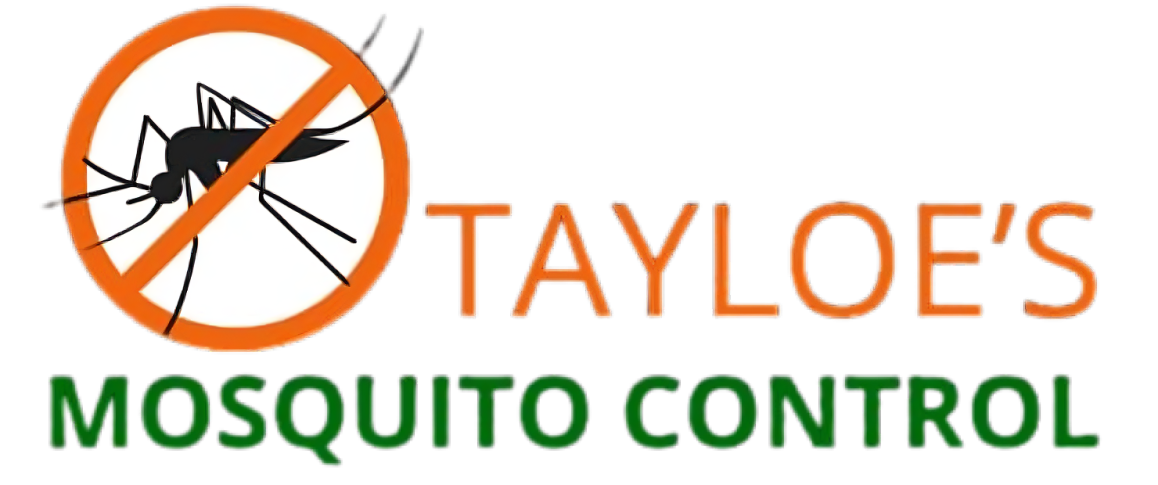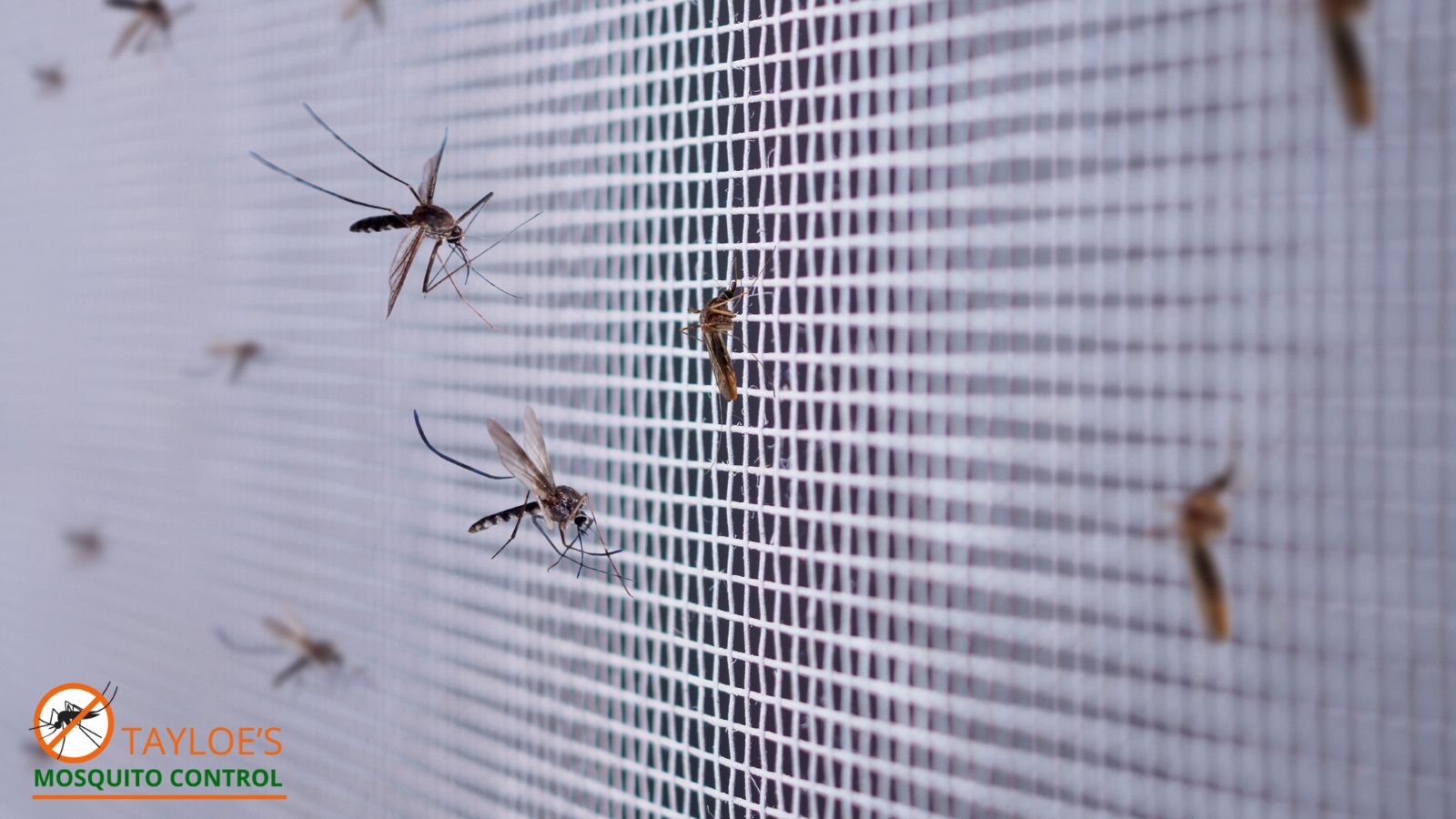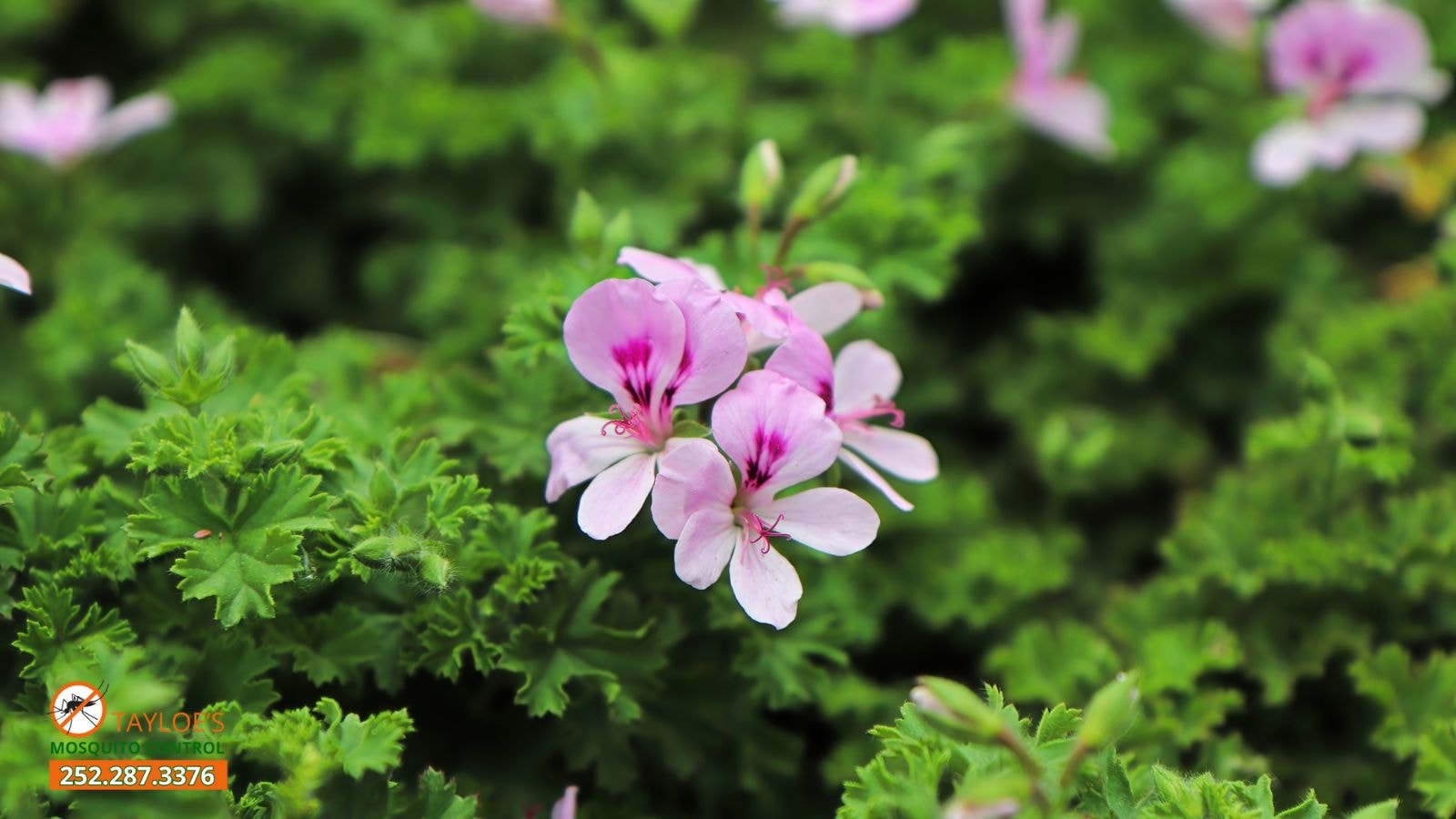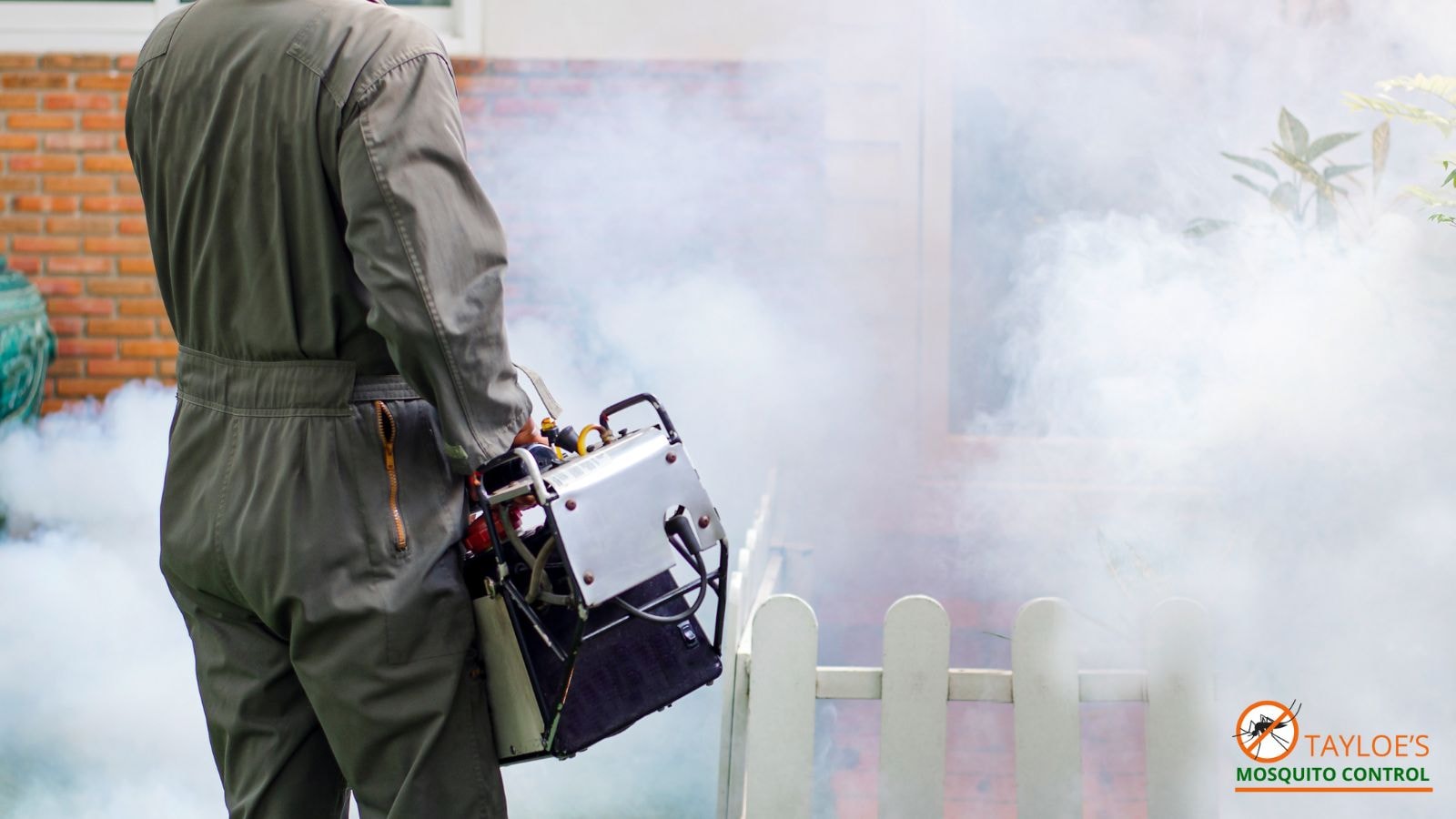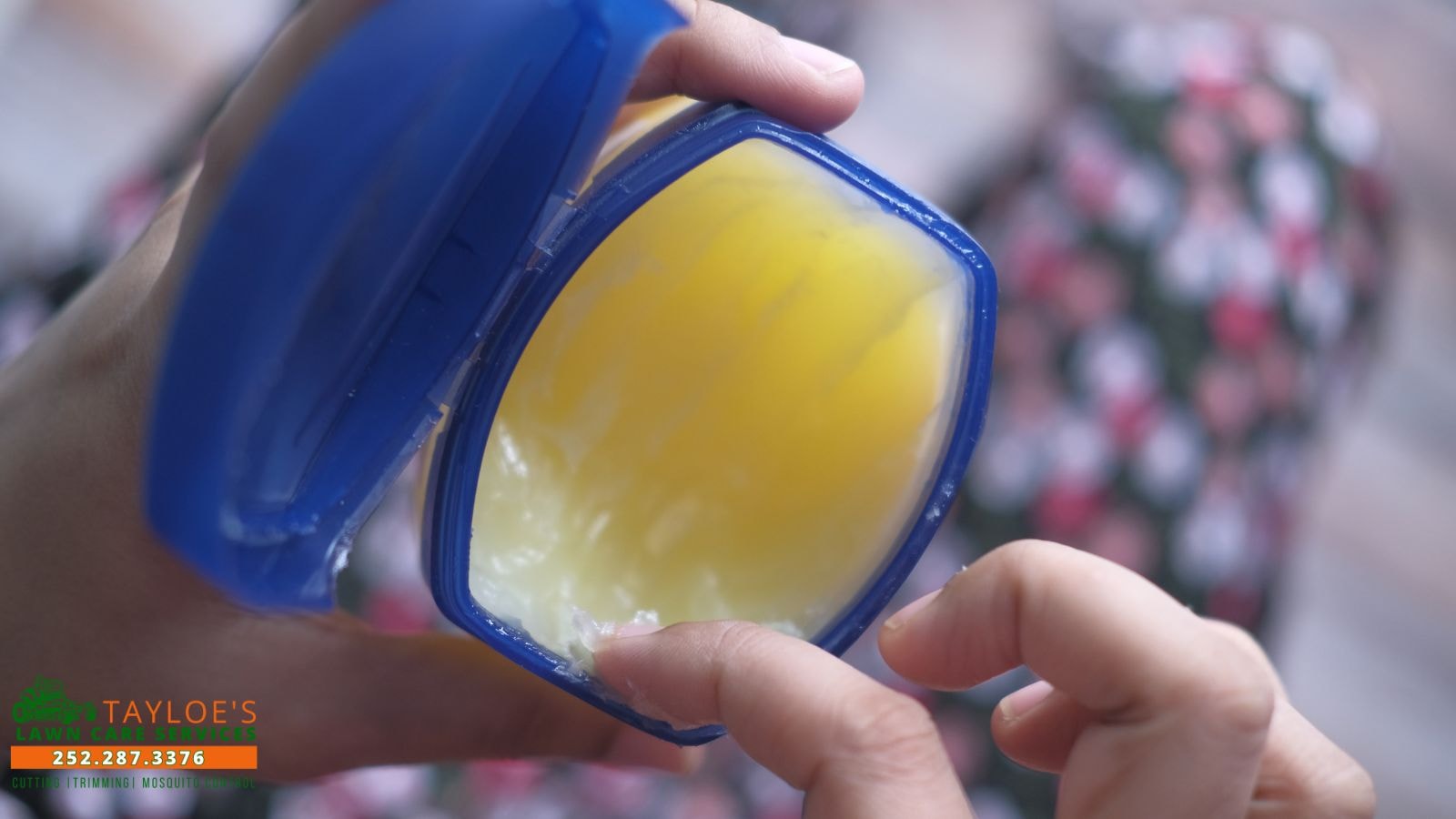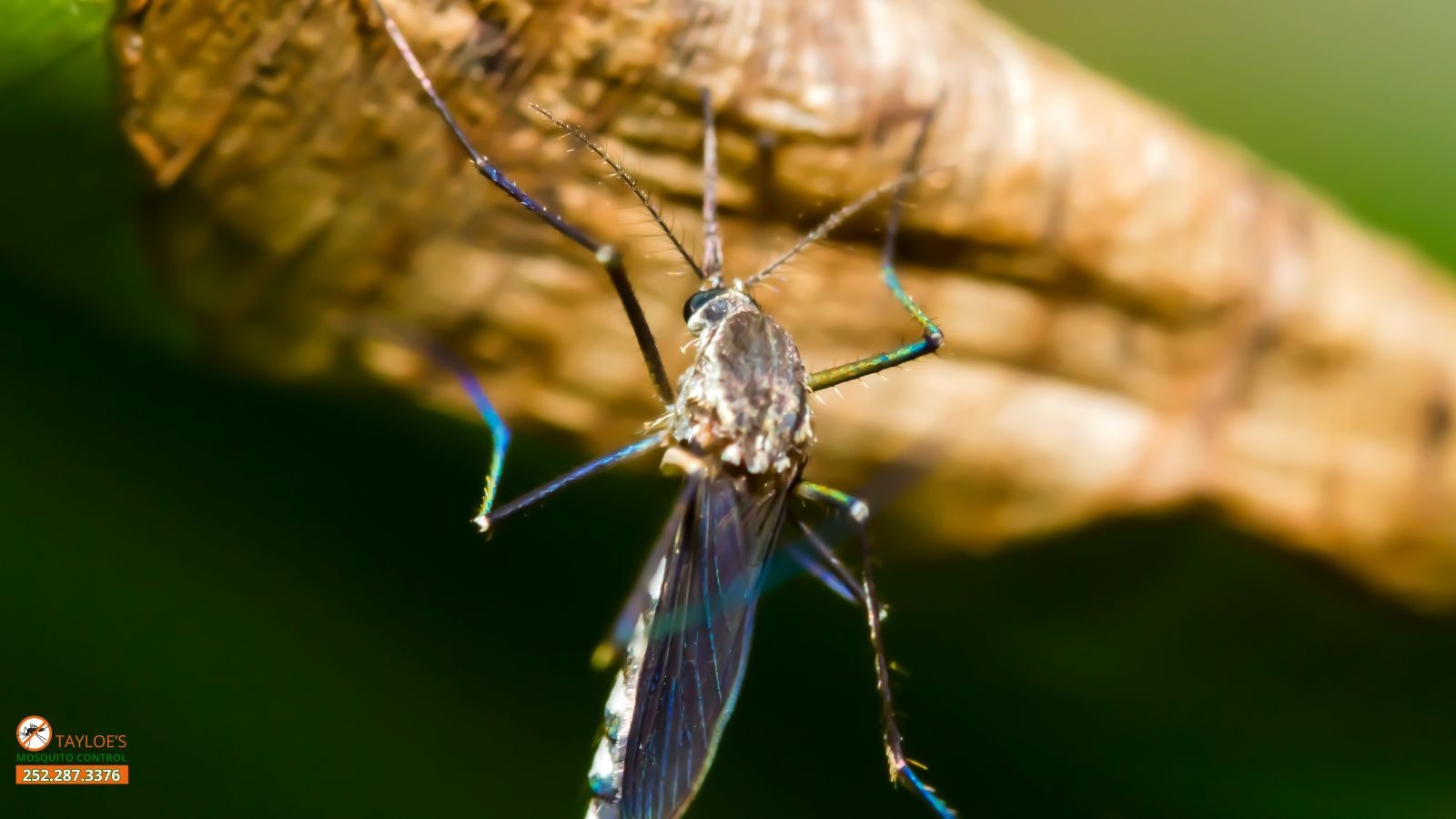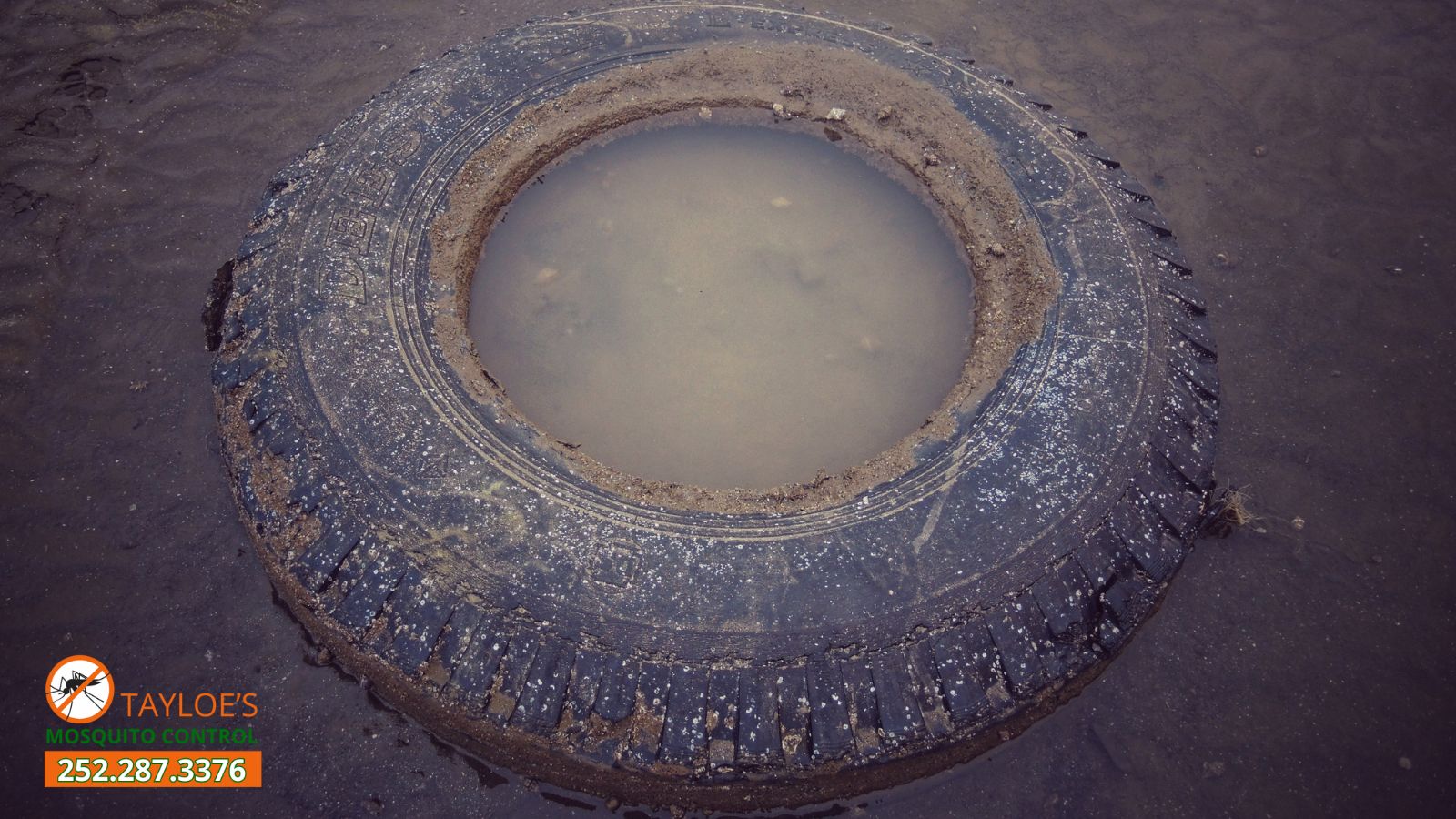Dealing with mosquitoes wreaks havoc in the Tarheel State.
You’ve tried it all – insect repellent, mosquito traps, and set your fan on high. No matter what you do, your skin keeps getting bitten by pesky mosquitoes. Just when you think the weather begins to turn from warmer weather to cold to offer relief, unexpected warm spells hit the area and they start the blood meal – on you – all over again. It makes you wonder: Just when is North Carolina mosquito season, anyway?
Tayloe’s Mosquito Control knows that a comprehensive treatment program is necessary to keep your property free of mosquitoes, especially since we experience more warmer months than cold months here in northeastern NC.
By the end of this post, you will understand:
- When North Carolina mosquito season starts and ends
- The types of mosquitoes in the Tarheel State
- Mosquito-borne diseases
- What conditions will attract mosquitoes to your yard
- How to protect yourself and your property from mosquito problems
When Does Mosquito Season Start in North Carolina?
Mosquito season in North Carolina typically starts in April and lasts until October. The peak mosquito season is usually in July and August. Mosquitoes (like many insects) thrive in humid environments and temperatures above 50°F.
That said, we sometimes have an early warmup in March, and the temperature drops often much later than October. So, generally speaking, we can say April to October. But in the eastern regions of the state, where we provide mosquito control service, the season can run March through November…or December/early winter. It’s tough to pinpoint the exact end date until we see what temperatures we may experience in the winter.
Mosquito Season Varies by Region
Mosquito season can vary depending on the region within North Carolina.The coastal regions tend to have a longer mosquito season than the mountainous regions, because of the warmer temperatures. Understanding the local mosquito season can help you prepare and take necessary precautions.
This post will focus primarily on eastern North Carolina since that is where Tayloe’s Lawn Care Services helps control mosquitoes for local homeowners, property managers, and businesses.
Mosquito-Borne Diseases in North Carolina
As if you need another reason to kill mosquitoes, besides the annoying bites and buzzing, they also pose public health risks to humans. That’s not our opinion or a sales point – even the Centers for Disease Control agrees that you need to get rid of mosquitoes.
Adult mosquitoes can spread viruses, such as West Nile and dengue, that can make you sick. When surveillance activities show that adult mosquito populations are increasing or that they are spreading viruses, professionals may decide to apply adulticides to kill adult mosquitoes. Adulticides help reduce the number of adult mosquitoes in an area and reduce the risk that people will get sick.
-Centers for Disease Control and Prevention (CDC)
Mosquitoes find humans by the carbon dioxide we emit through our bodies. Our own body functions make us a prime target for mosquitos that can harm us.
Here are the species active in North Carolina:
Aedes aegypti (Yellow Fever Mosquito)
- Description: Small, dark insects with white markings on its legs and a lyre-shaped pattern on its thorax.
- Diseases Carried: Can spread Zika virus, dengue fever, chikungunya, and yellow fever. It’s an aggressive daytime biter and commonly breeds in containers with standing water.
Aedes albopictus (Asian Tiger Mosquito)
- Description: Known for its distinctive black and white striped legs and body. It’s smaller than the Aedes aegypti and thrives in both urban and rural areas.
- Diseases Carried: Can transmit Zika virus, dengue fever, and chikungunya. This species is also an aggressive daytime biter and breeds in a variety of water-filled containers.
Culex pipiens Can Carry West Nile Virus (Northern House Mosquito)
- Description: Light brown insects with darker brown markings, commonly found in urban and suburban areas, especially in stagnant water sources.
- Diseases Carried: Primarily, northern house mosquitoes carry West Nile virus, St. Louis encephalitis, and Eastern equine encephalitis (EEE). Most active from dusk to early morning.
Culex quinquefasciatus (Southern House Mosquito)
- Description: Similar in appearance to Culex pipiens, this mosquito has light brown coloring with pale bands on its abdomen and is active in warm, humid climates.
- Diseases Carried: Transmits West Nile virus, St. Louis encephalitis, and Eastern equine encephalitis (EEE). Active during the evening and nighttime hours.
Anopheles quadrimaculatus (Common Malaria Mosquito)
- Description: Recognizable by the four dark spots on its wings, this mosquito is found in freshwater habitats, such as ponds and slow-moving streams.
- Diseases Carried: The primary carrier of malaria in the United States, although malaria transmission is rare in NC today. It can also transmit other blood-borne parasites.
Aedes sollicitans (Eastern Saltmarsh Mosquitoes)
- Description: A medium-sized mosquito with brown and white markings, commonly found in salt marshes and coastal areas but can travel inland.
- Diseases Carried: Known to transmit Eastern equine encephalitis (EEE) and dog or cat heartworm. It’s an aggressive biter, especially active at dawn and dusk, and can be a significant nuisance during peak mosquito season.
Preparing for Mosquito Season
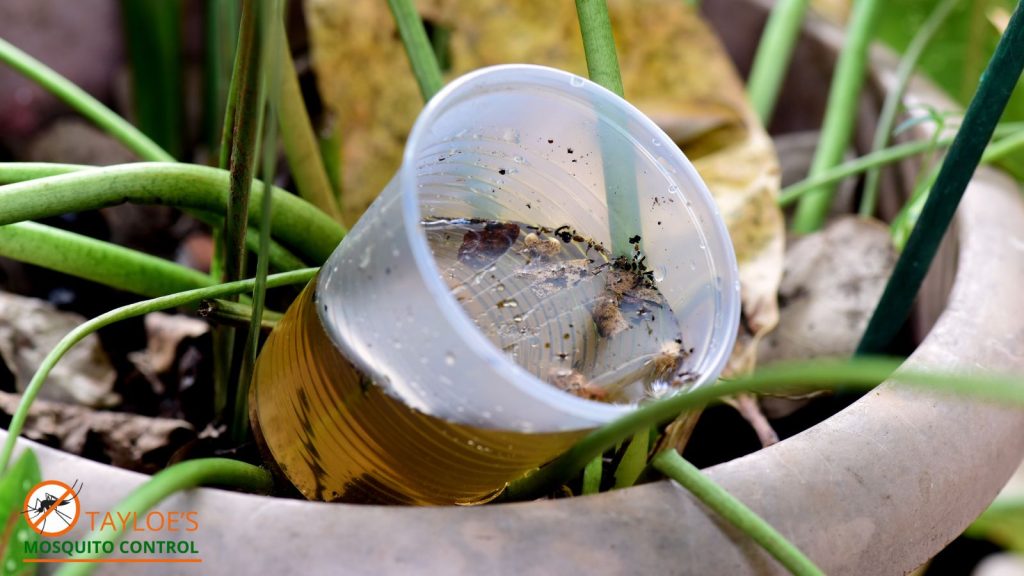
Mosquito-Proof Your Property
Remove standing water from your property to prevent mosquito breeding. Check for and eliminate any sources of standing water, such as bird baths and clogged gutters. Female mosquitoes seek them for breeding and laying eggs. Use insect repellents and wear long-sleeved clothing and pants instead of shorts to prevent mosquito bites.
Controlling Mosquitoes in North Carolina
In-Season Mosquito Control Tips
Use mosquito traps and repellents to control mosquito populations. Eliminate standing water and keep your property clean to prevent mosquito breeding. Consider hiring a pest control professional to control mosquito problems.
What if You Already Have an Infestation?
If you’re already dealing with mosquitoes taking over, acting quickly to regain control of your outdoor space and protect your family from potential health risks is crucial. Start by eliminating standing water around your property, as this is where mosquitoes breed.
Clean out gutters, empty containers, and change water in birdbaths regularly. Next, consider using mosquito sprays, traps, or repellents to reduce the adult mosquito population. Be sure to insert your window screens if you open your home’s windows.
For a more effective, long-term solution, professional mosquito control services, like Tayloe’s Mosquito Control, can treat your yard with targeted fogging treatments to eliminate existing mosquitoes and prevent future infestations. Our monthly service will create a protective barrier around your home, allowing you to enjoy your outdoor space again without constantly hearing buzzing and feeling biting.
Personal Protection During Mosquito Season

How to Avoid Mosquito Bites
Wear protective clothing, such as long sleeves and long pants, to stop mosquitoes from biting exposed skin. Wearing long sleeves in the summer heat may seem unappealing in the summertime, but mosquitoes require a blood meal to thrive. Don’t let it be yours.
Use an insect repellent to repel mosquitoes. Avoid areas with high mosquito activity, such as near standing water.
What to Do If You Get Bit by a Mosquito
Apply antiseptic to the mosquito bite to prevent infection. Calamine lotion or hydrocortisone cream can reduce itching and inflammation. Some people have allergies to mosquitoes and are at a higher risk of complications.
If you experience severe symptoms, such as fever, shortness of breath, or a headache, seek medical attention. Mosquitos can spread disease.
Disclaimer: We are not doctors, just North Carolina-licensed custom applicators who know how to get rid of your mosquito problems. And in our line of work, we get bit pretty often.
Common Mosquito Hiding Places
Our service eliminates adult mosquitoes in their hiding spots so they will no longer be laying eggs in your yard. Here are some of the common spots most people don’t realize:
- Standing Water: Ok. We already mentioned this, and we’re getting repetitive. But we see this all the time. Mosquitoes lay their eggs in standing water, so puddles, birdbaths, gutters, plant saucers, kid pools or puppy wading pools, and even the smallest containers can become breeding grounds.
- Overgrown bushes and tall grass: During the day’s heat, mosquitoes seek out shady, cool spots to rest. Overgrown grass, bushes, and dense foliage provide the perfect hiding places.
- Clogged Gutters: Gutters filled with leaves and debris can hold water, creating an ideal environment for mosquitoes to lay eggs and hide from the heat.
- Tree Holes and Stumps: Any hollow or depression in a tree can collect water, offering mosquitoes a safe, sheltered spot.
- Under Decks and Porches: Mosquitoes commonly hide in the shaded, humid area underneath decks, porches, and patio furniture during the day.
- Old Tires and Tarps: Old tires, tarps, and other items that collect water are popular mosquito hangouts, especially if left undisturbed.
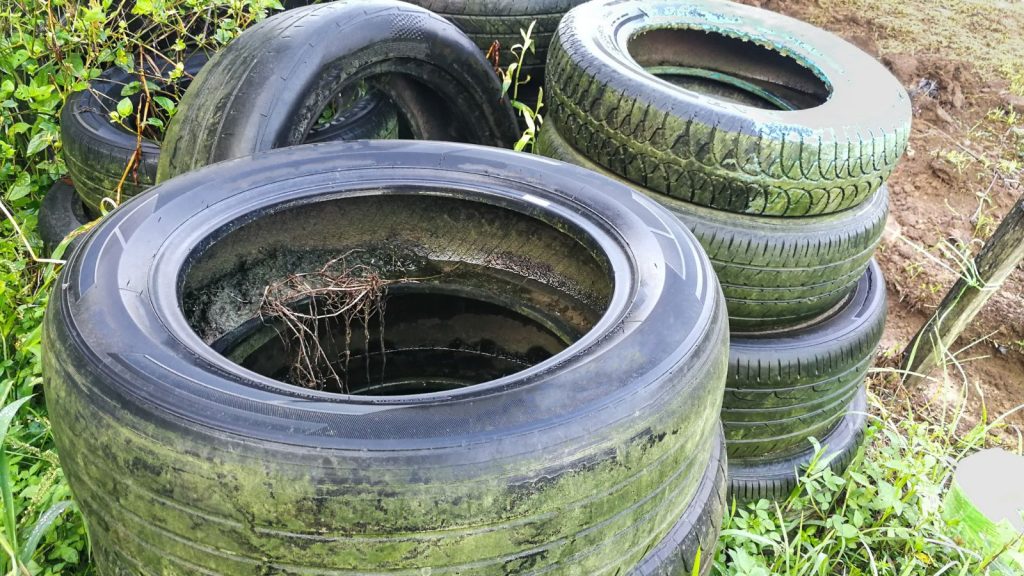
Regularly inspecting and maintaining these areas can significantly reduce mosquito populations around your home. For comprehensive protection, consider professional mosquito control treatments to target these hiding spots effectively.
Additional Tips for Surviving Mosquito Season
Protect Your Outdoor Spaces
Use mosquito screens to keep mosquitoes out of outdoor living areas. Eliminate standing water and keep your outdoor spaces clean to prevent mosquito breeding. Use mosquito repellents, such as citronella candles or torches, to keep mosquitoes away. You can also try growing plants that discourage them around your outdoor living areas.
Stay Informed and Take Action
Stay informed about mosquito-borne diseases and mosquito activity in your area. Take action to prevent mosquito breeding and control mosquito populations. Consider participating in mosquito control efforts to help reduce mosquito populations.
Surviving Mosquito Season in North Carolina With the Help of Tayloe’s Mosquito Control
Mosquito season in North Carolina can be challenging, but with the proper preparation and precautions, you can survive it. Remember to mosquito-proof your property, control mosquito populations, and take personal protection measures to prevent mosquito bites. Stay informed and take action to help reduce mosquito populations and prevent mosquito-borne diseases.
Call Tayloe’s Lawn Care Services, LLC mosquito control division at 252.287.3376 to schedule service.
